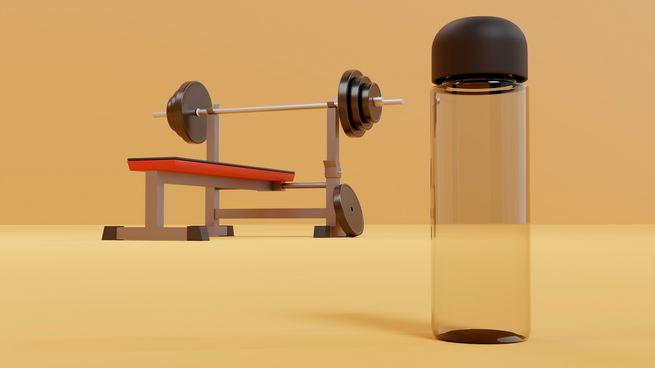Understanding Creatine Results: A Comprehensive Guide
المحتويات
Creatine is one of the most studied and popular supplements in the fitness and athletic community. Known for its efficacy in enhancing performance, creatine can yield significant results when used appropriately. This article will delve into how creatine works, what results users can expect, and how to optimize its use for maximum benefits.
What is Creatine?
Creatine is a naturally occurring compound found mainly in muscle cells. It helps produce adenosine triphosphate (ATP), the primary energy carrier in the body, particularly during high-intensity exercise. By increasing the availability of ATP, creatine allows for enhanced performance during short bursts of physical activity, such as sprinting or weightlifting.
How Creatine Works
When supplemented, creatine increases the phosphocreatine stores in muscles. Phosphocreatine serves as a quick energy source, enabling athletes to perform at higher intensities for longer periods. The mechanism can be summarized as follows:
1. **Increased Energy Production**: Enhanced ATP production leads to improved performance in anaerobic activities.
2. **Improved Recovery**: Creatine may reduce muscle cell damage and inflammation, aiding in faster recovery post-exercise.
3. **Increased Muscle Hydration**: Creatine draws water into muscle cells, promoting greater muscle volume and potentially leading to increased strength and size over time.
Expected Results from Creatine Supplementation
Results from creatine supplementation can vary based on several factors, including the individual’s training regimen, diet, and the type of creatine used. However, many users report the following benefits:
Creatine is a popular supplement among athletes and fitness enthusiasts due to its ability to enhance strength, increase lean muscle mass, and aid in muscle recovery. Many users report noticeable improvements in their performance and endurance levels after incorporating creatine into their regimen. For those interested in exploring a variety of creatine products, you can visit https://anabolhardcoreusa.com/product-category/sport-nutrition/creatine/ to find options that suit your needs and help you achieve your fitness goals.

Short-Term Effects
– **Immediate Strength Gains**: Many individuals notice improvements in strength and power output within days of starting creatine supplementation.
– **Increased Muscle Size**: Initial weight gain often occurs due to water retention in the muscles, leading to increased muscle mass appearance.
– **Enhanced Workout Performance**: Athletes frequently report being able to push through more reps or lift heavier weights during sessions.
Long-Term Effects
– **Greater Lean Muscle Mass**: Over weeks or months, consistent creatine use combined with resistance training can lead to substantial muscle hypertrophy.
– **Improved Endurance in Repeated Sprints**: Enhanced recovery may allow for better performance in sports requiring repeated sprints or high-intensity intervals.
– **Potential Cognitive Benefits**: Emerging research suggests that creatine might also support brain health and cognitive function, especially under mental fatigue.
How to Use Creatine Effectively
To maximize the results from creatine supplementation, consider the following guidelines:
1. **Loading Phase (Optional)**:
– Some users follow a loading phase where they take around 20 grams daily for 5-7 days, divided into 4 doses, to saturate their muscles quickly.
2. **Maintenance Dose**:
– After the loading phase, a daily maintenance dose of 3-5 grams is typically sufficient to maintain elevated creatine levels in the muscles.
3. **Timing**:
– While timing isn’t crucial, taking creatine shortly before or after workouts with a carbohydrate source can enhance uptake due to increased insulin sensitivity.
4. **Stay Hydrated**:
– Since creatine draws water into muscle cells, it’s vital to drink plenty of fluids to avoid dehydration.
Considerations and Potential Side Effects
While creatine is generally safe for most people, there are some considerations to keep in mind:
– **Digestive Issues**: Some users may experience stomach discomfort. Starting with a lower dose or taking it with food can alleviate this.
– **Kidney Concerns**: Individuals with pre-existing kidney issues should consult a healthcare provider before starting any supplementation.
– **Weight Gain**: Due to water retention in muscle cells, some individuals may experience weight gain, which might be undesirable for athletes in weight-class sports.
Conclusion
Creatine remains one of the most effective supplements for enhancing athletic performance and building muscle mass. With the right approach and understanding of individual goals, users can effectively harness its benefits. As with any supplement, it’s important to combine creatine with a balanced diet and a proper training program for optimal results..
